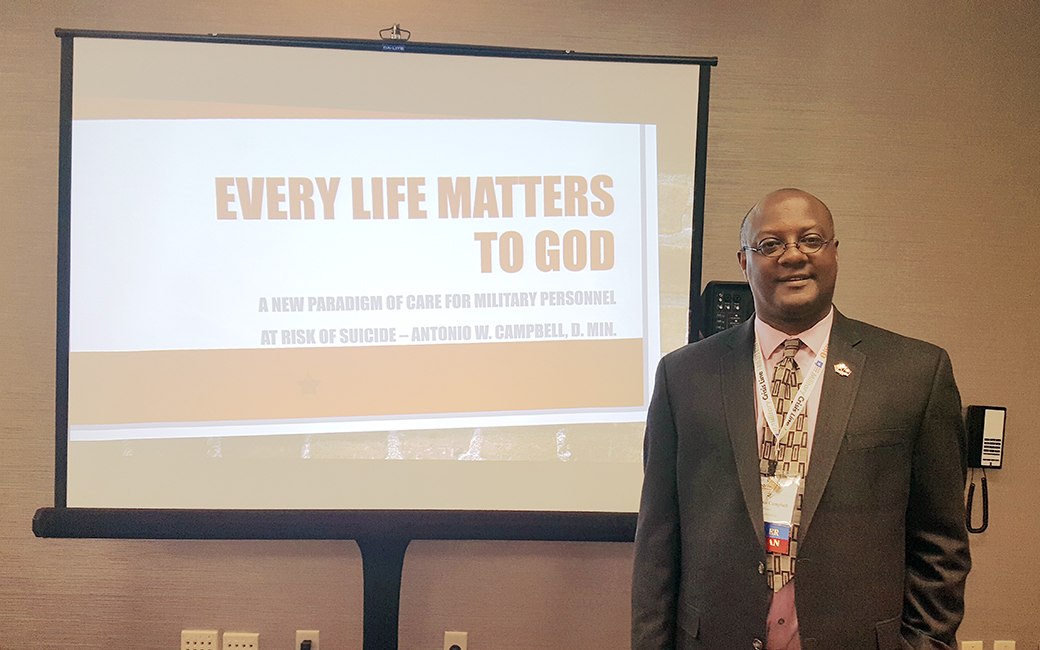Serving those who serve us: TU’s Campbell presents research on military suicides to DoD/DVA conference
TU adjunct professor and former U.S. Army chaplain presented research on suicide prevention and the role of military chaplains.
By Reiko Gallo '18 on October 5, 2017

Members of the United States military serve with distinction every day. But prolonged combat, trauma and behavioral health disorders are among myriad other, often loosely understood factors that have taken their toll on America’s fighting men and women.
Whatever the reason, military suicides have increased sharply since 2001, with some reports placing service members and veterans as twice more likely to commit suicide than civilians.
Towson University Department of Political Science adjunct professor Antonio Campbell, Ph.D., served as a U.S. Army chaplain for four years. He presented his research on suicide prevention and the role of military chaplains to over 1,380 suicide prevention matter experts, coordinators, and managers at the 2017 U.S. Department of Defense (DoD)/U.S. Department of Veteran Affairs (VA) Suicide Prevention Conference this past August.
“After I was asked to present,” explained Campbell, “I knew it was a great opportunity to talk to people who are actually dealing with the issue of suicide all across the military branches, along with veterans.
“We were broken up into different work groups. I thought there would be only a handful in attendance because military chaplain work is something people don’t really talk about, but there were about 150 people in the room.”
Campbell obtained his Master of Science (MS) from Towson University before earning a Master of Divinity (M.Div.) and Doctor of Ministry from Liberty University.
Both of Campbell’s parents were in ministry. Their influence and engagement through the years led him to figure out what he believed in and pushed him to answer the “why” questions as he continued to advance in ministry work and his work evolved into education.
Campbell teaches a TSEM on religion and politics, political theory, and an upper-level religion and politics course and works his experiences into classroom content often as he can.
Unique in content, Campbell’s presentation at the conference explained the “non-quantifiables,” something he also introduces in his classes.
“Psychological practices, diagnoses and medications are tangible, you can spell them out,” Campbell expressed. “But you can’t quantify a soul; you can’t diagnose a soul.”